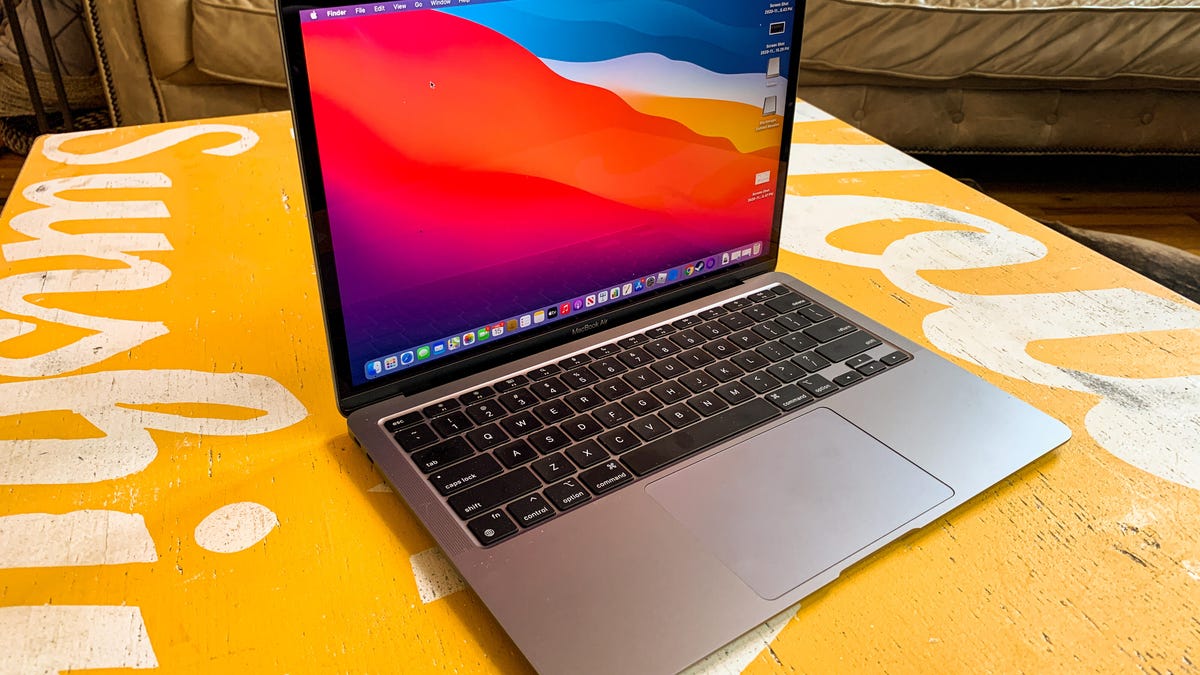Apple rumored to be prepping new MacBook Air with MagSafe magnetic charging
The new update will come either later this year or in 2022.

Apple is reportedly working on a new version of the MacBook Air.
Apple is working on a new MacBook Air that will be even thinner and lighter than the company's already svelte laptop. According to a Bloomberg report on Friday, Apple plans to release the new machine "during the second half of this year at the earliest or in 2022."
The new MacBook Air, the report details, will run on a new version of Apple's M1 processors and may shrink the bezels around the 13-inch screen to cut down on the computer's size. Also new: a version of the MagSafe magnetic charging system, which has previously been rumored to be returning to MacBooks after being dropped in favor of USB-C charging.
Bloomberg reports that the new Air would have "a pair of USB 4 ports" for connecting to other devices.
Apple did not immediately respond to a request for comment.
The outlet adds that the new MacBook Air won't necessarily replace the current model, which was last updated in November as one of the first Macs with Apple's M1 in-house processor. Instead, this new Air would be a "higher-end version" of the current laptop, which Bloomberg says "is expected to remain in the company's lineup as an entry-level offering."
Beyond the new Air, Bloomberg's Mark Gurman writes that Apple is planning to bring back the SD card slot for its upcoming MacBook Pro refresh and is working on the ability for its new Macs to support built-in cellular connectivity and Face ID facial recognition. Gurman, however, notes that neither of the latter features "appears to be coming soon."

